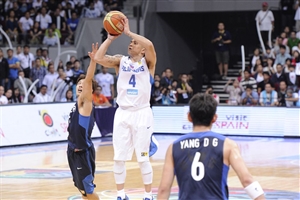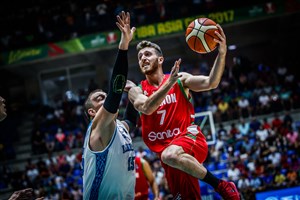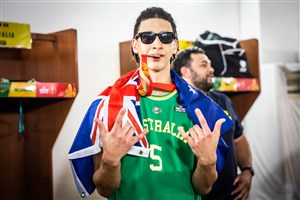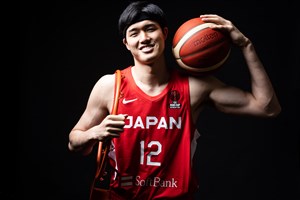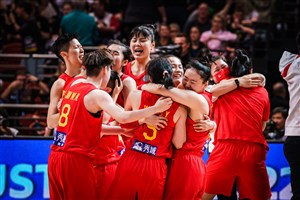
Korea's "Hulk" Ha Seung-Jin was one of Asia's best big men
SEOUL (Korea) – The first two decades of the 21st century in Asian basketball has belonged to the big men. China’s Yao Ming started the domination in the early 2000s. When he retired, the torch was passed to Iran’s Hamed Haddadi. Another big man’s reign overlapped the era of both Yao and Haddadi, playing for the Korean national team. He is also a former NBA player, drafted by and played for the Portland Trailblazers.
Let’s take a look back at the Asia Cup career of Korea’s Ha Seung-Jin.
Teenage Titan
Ha Seung-Jin had barely turned 18, but he was already set to make his FIBA Asia Cup debut at the 2003 tournament in Harbin. The 2.21M (7’3”) center’s role was limited as an inexperienced teenager on a well-balanced team that had 5 players average double-digit scoring, but he had his moments. In the quarter-finals against Kazakhstan, Ha scored his tournament-high of 13 points by shooting 9-12 from the charity stripe.
Korea went all the way to the championship game that year, earning Ha his first podium finish in the FIBA Asia Cup at 2nd place. Ha’s presence was limited in the title game with only 4 points and 4 personal fouls, but it was clear that the future was bright for the lumbering big man.
Belated birthday present
2007 was the year that Ha Seung-Jin put it all together. It was his 3rd Asia Cup appearance and he stepped up as Korea’s largest weapon, both literally and figuratively.

Against a strong Jordan team that finished in 5th place that year, Ha piled in a monstrous double-double with 21 points and 12 rebounds. He also added 4 blocked shots and shot 9-13 from the field to cap off a crucial 70-65 win against the Jordanian squad. His strong performance continued all the way to the semifinals for a Ha’s third consecutive year, where Korea were set to match up with Lebanon.
The date of the semi-finals coincided with Ha’s 22nd birthday on August 4. The birthday boy had an admirable performance of 15 points and 10 rebounds on 6-10 shooting, but no wishes were granted as Korea lost in a thriller to Lebanon, 76-74.

Ha bounced back for the third place game, going off for his Asia Cup-high 25 points while also grabbing 7 rebounds. Even though he fouled out late in the game, Korea held on to an 80-76 win and Ha collected his second Asia Cup medal. It wasn’t Ha’s best Asia Cup finish, but he was the clear star of the team, leading Korea in scoring (17.3 points per game) and rebounding (9.1 rebounds per game). Ha was also one of the best players of the 2007 Tokushima tournament without a doubt, finishing at 7th in scoring, 3rd in rebounds, 2nd in blocks, and 1st in field-goal shooting percentage on an unstoppable 68.7 percent.
And another one
By 2011, Ha Seung-Jin made the Korea national team for a 5th straight time in the Asia Cup though his impact was reduced from his previous runs. The Seoul native played in only limited minutes and games after putting up 10 points and 4 rebounds in the opening game against Malaysia.

Ha returned to action heading into the quarterfinals and played a big role in Korea’s win over Japan to reach the semifinals. He showcased what he had been capable of in 2007, scoring 14 points on 7-10 shooting and grabbed 8 boards along with a personal-high of 4 assists in the 86-67 win.

The tournament ended once again with Ha and Korea in the Top 3 with their 70-68 win over the Philippines. In 5 Asia Cup appearances, Ha had successfully made it to the semifinals with Korea 4 times and claimed 3 medals. He was just short of averaging double-digit scoring with 9.9 points per contest over 36 games, but also had 6.7 rebounds per game on 58.8 percent shooting since 2007. While Ha’s résumé might not be able to match up to that of Yao or Haddadi, it should still be considered one of the better Asia Cup careers ever, regardless of position, nonetheless.
FIBA

